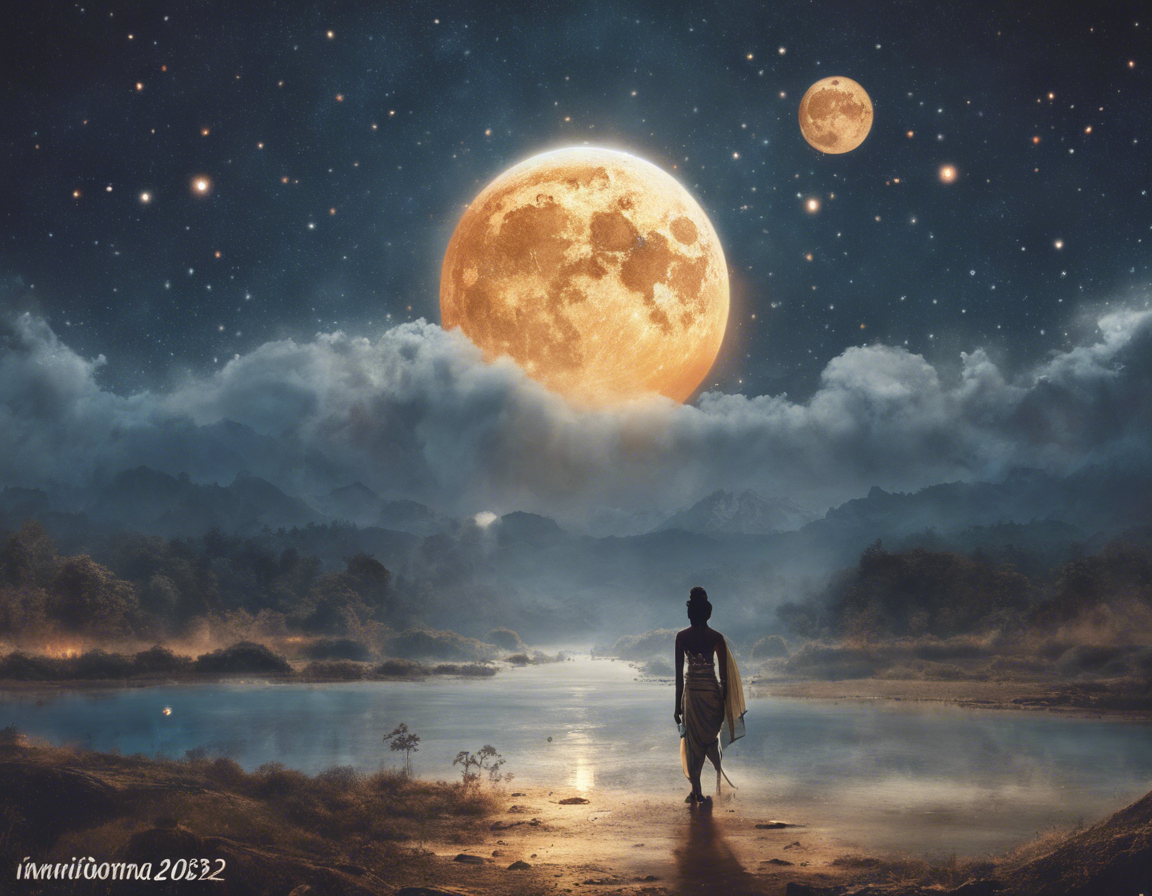The Purnima, or full moon, is a significant event in the Hindu calendar, celebrated with various rituals and festivals across India and other parts of the world. In September 2023, the Purnima is expected to fall on Sunday, September 10th. The exact date and time may vary slightly based on the lunar calendar and geographical location, so it is advisable to consult local Panchang or lunar calendars for the most accurate information.
Importance of Purnima:
Purnima holds special significance in Hindu culture and spirituality. It symbolizes purity, completeness, and auspiciousness. Many religious and cultural events are organized on this day, and people often observe fasts and perform rituals to seek blessings and good fortune.
Rituals and Celebrations:
On the day of Purnima, devotees wake up early, take a holy bath, and visit temples to offer prayers to Lord Vishnu or Goddess Lakshmi. Charity, meditation, and chanting of mantras are also common practices on this day. Many people observe a fast and consume a vegetarian diet to purify the body and soul.
Significance in Different Cultures:
Purnima is celebrated in various ways across different cultures and regions. In addition to its religious significance, the full moon is also associated with harvest festivals, music and dance performances, and other cultural events in many parts of India.
Astrological and Spiritual Beliefs:
Astrologically, Purnima is considered an auspicious time for spiritual practices and meditation. It is believed that the positive energies of the full moon can enhance one’s spiritual growth and inner peace. Many people prefer to conduct important ceremonies or rituals during this time for favorable outcomes.
Purnima Vrat (Fast):
Observing a fast on Purnima is believed to cleanse the body and mind, promote self-discipline, and seek blessings for prosperity and well-being. Some devotees observe a strict fast, consuming only water or fruits, while others may opt for a partial fast with restricted diets.
Purnima Festivals:
Several festivals are celebrated on Purnima, including Sharad Purnima, Guru Purnima, Kojagari Purnima, and Kartik Purnima. These festivals have their unique traditions, rituals, and cultural significance associated with the full moon day.
FAQs (Frequently Asked Questions):
Q1: Can anyone observe the Purnima fast?
A1: Yes, people of all ages and genders can observe the Purnima fast. It is considered a sacred practice open to anyone seeking spiritual growth and blessings.
Q2: What is the significance of offering prayers on Purnima?
A2: Offering prayers on Purnima is believed to bring peace, prosperity, and fulfillment of desires. It is a way to express devotion and seek divine blessings.
Q3: Are there any specific rituals to be followed on Purnima?
A3: While rituals may vary based on traditions and personal beliefs, common practices include visiting temples, performing charity, meditating, chanting mantras, and observing a fast.
Q4: How can one make the most of the spiritual energies of Purnima?
A4: Engaging in meditation, self-reflection, yoga, and acts of kindness can help individuals connect with the heightened spiritual energies of Purnima.
Q5: Are there any specific foods to be consumed or avoided during the Purnima fast?
A5: Many people prefer to consume simple vegetarian meals during the Purnima fast, avoiding meat, alcohol, and processed foods. Fruits, vegetables, nuts, and dairy products are commonly consumed.
Purnima holds a special place in Hindu culture as a time of spiritual significance, reflection, and celebration. By observing rituals, performing acts of devotion, and connecting with the positive energies of the full moon, individuals can seek blessings, inner peace, and prosperity on this auspicious day.
